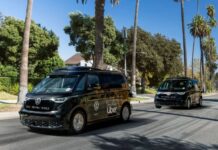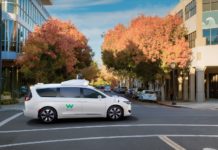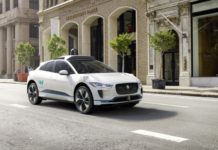In a long profile of automaker Ford Motor Co.’s efforts to remake itself in a new era of mobility, Kevin Roose says that “driving isn’t just a mechanical task — it’s a social act.” Driving has always been that way, from time spent chatting with fellow travelers to the hand signals used at intersections, from the rules by which drivers self-regulate themselves to stopping at red lights. When (or if) vehicles become truly autonomous, Roose says, “self-driving cars will need to develop a level of social awareness that approaches that of a full-fledged A.I.”
One case in point: dockless bike sharing. Dockless bikes — which are embedded with GPS chips and can be parked and dropped off anywhere — put the onus of good behavior
In a long profile of automaker Ford Motor Co.’s efforts to remake itself in a new era of mobility, Kevin Roose says that “driving isn’t just a mechanical task — it’s a social act.” Driving has always been that way, from time spent chatting with fellow travelers to the hand signals used at intersections, from the rules by which drivers self-regulate themselves to stopping at red lights. When (or if) vehicles become truly autonomous, Roose says, “self-driving cars will need to develop a level of social awareness that approaches that of a full-fledged A.I.”
But the new rules of social mobility, so to speak, are already being written.
One case in point: dockless bike sharing. Dockless bikes — which are embedded with GPS chips and can be parked and dropped off anywhere — put the onus of good behavior squarely on the rider, rather than on infrastructure. Riders must decide to park responsibly, while a city-sponsored shared bike forces riders to use designated parking spots. Dockless bikes are already a huge business in China, and the two largest companies in the industry have each raised more than $1 billion in venture capital (though the next company in the fundraising league table apparently isn’t doing so well).
Even chipmaker Qualcomm Inc. is getting in on the action. During its latest round of Chinese investments, the company said “there are places in China that feel like stepping into the future.” China could extend that dockless, shared mobility further if startup Wheelys rolls out its prototype of a “self-driving supermarket.” That moving market could reach nearly a billion consumers — and billions of transactions — every year while tracking its users’ behavior and interacting with those customers in mobile app WeChat, which boasts 900 million users and triple-digit annual growth.
Such truly autonomous vehicles might not need to go home, so to speak — they could well be a home:
This future waterless houseboat wouldn’t just look different from today’s cars, or even today’s recreational vehicles. It would behave differently, too, changing social norms and even creating new ones.
If a vehicle drives itself, it never really needs to park; if it is told to park (or chooses to park), there are many places it could go. Wal-Mart parking lots already host RVs. Could trusted, vetted, socially approved vehicles and passengers be allowed overnight respite in empty school parking lots as well?
Ultimately, the autonomous car could change the very nature of who values cars the most. James Pethokoukis says driverless cars will be the next battlefield in the American culture wars — and, eventually, a wedge issue as significant as gun control. Today’s drive- and drive-nots paradigm puts those who don’t have cars at a significant social disadvantage. Could tomorrow’s paradigm be the reverse?



























